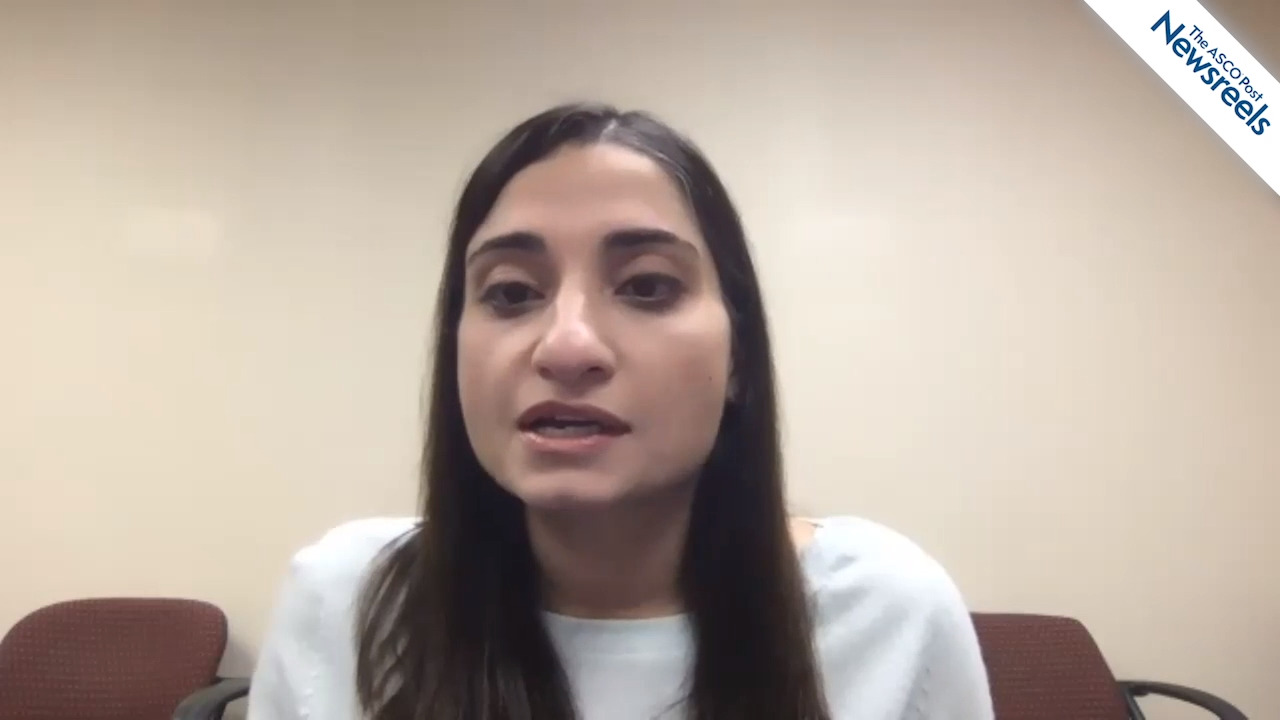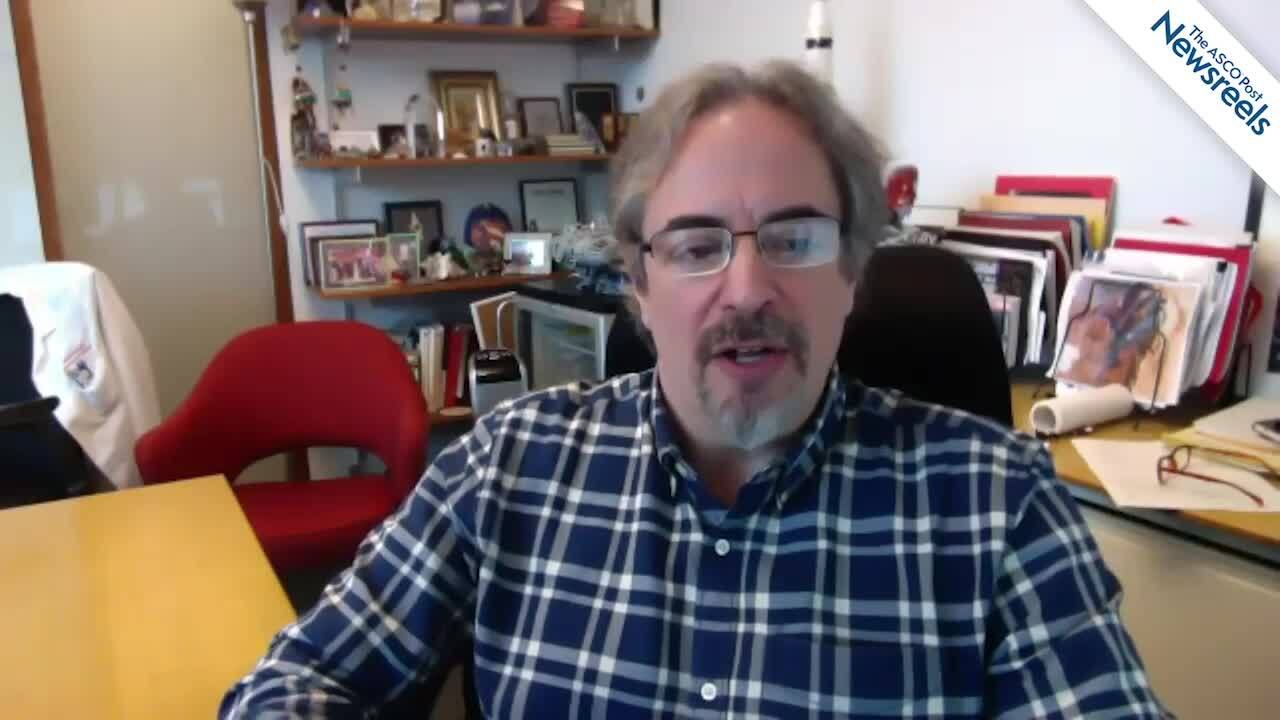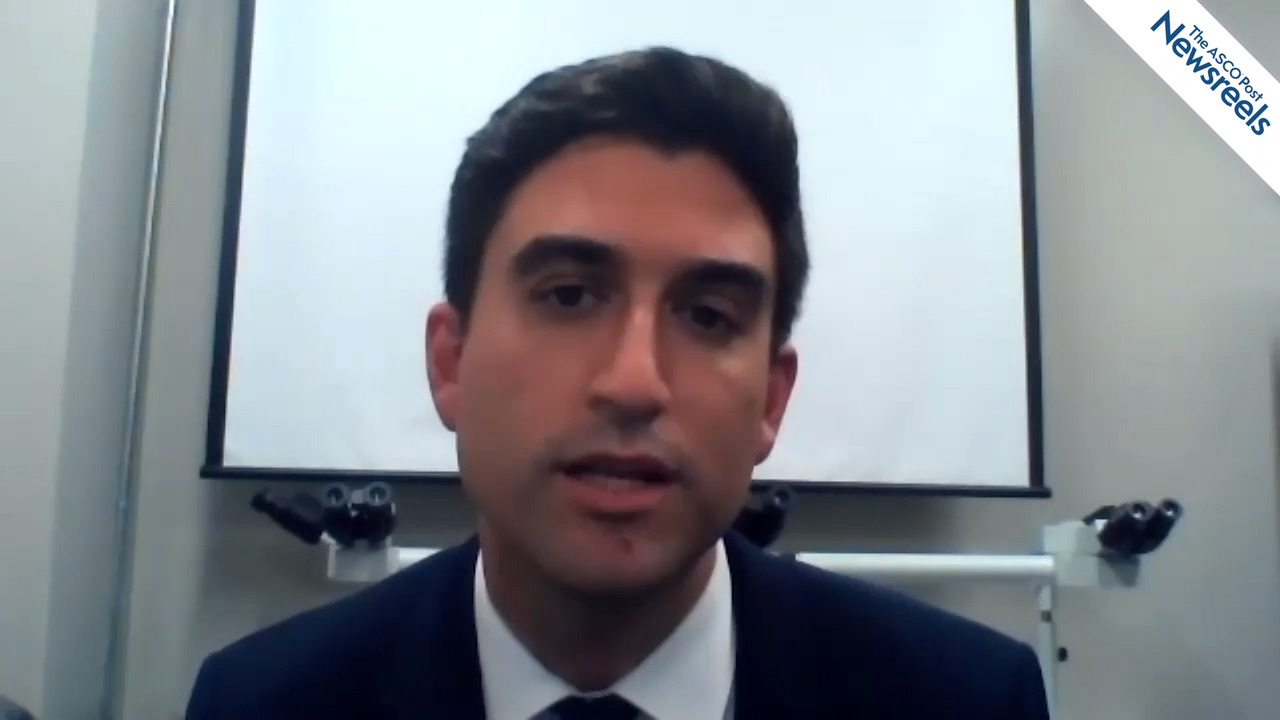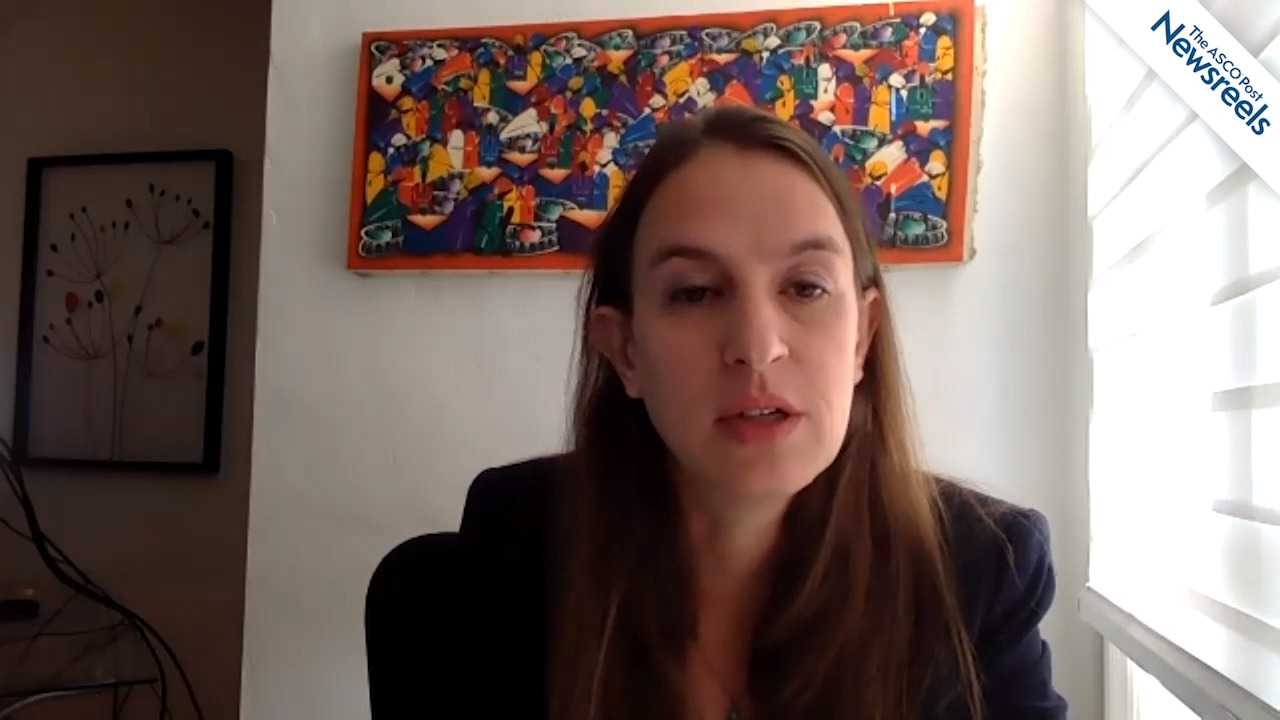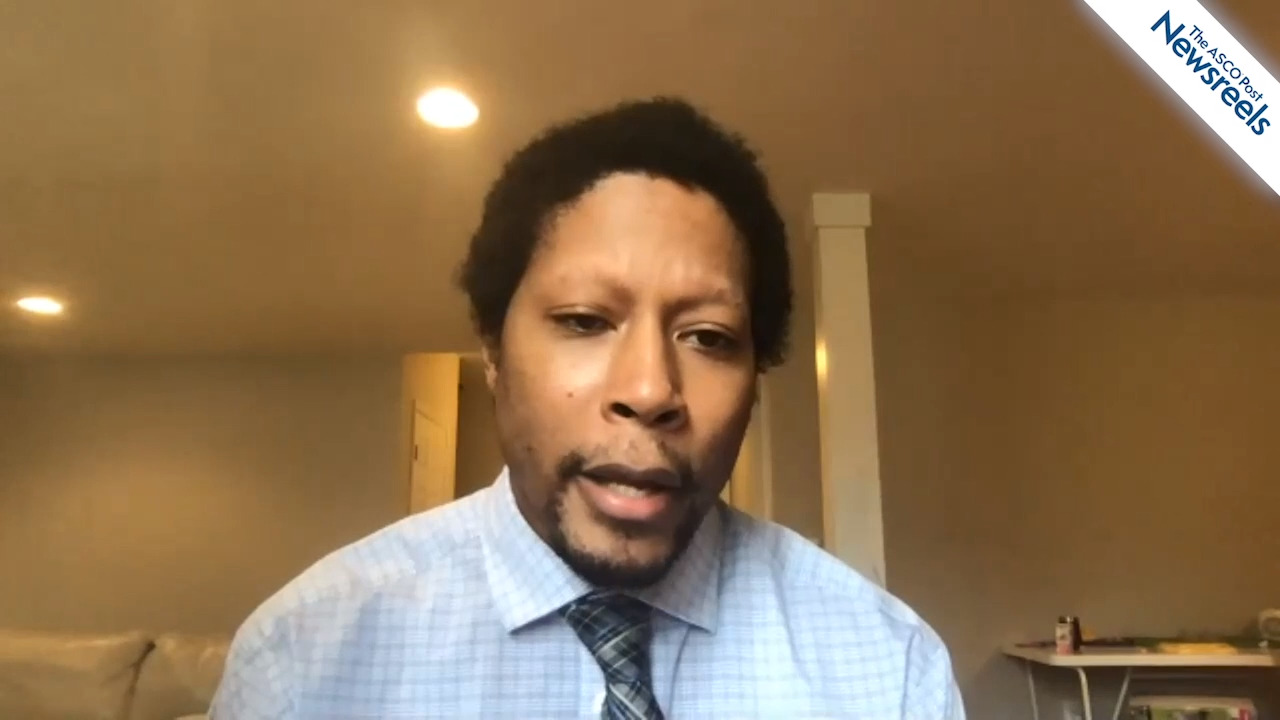Sagar Lonial, MD, on CAR T-Cell Therapies for Myeloma: Novel Approaches and Longer-Term Follow-up Data
2020 ASH Annual Meeting & Exposition
Sagar Lonial, MD, of the Emory University School of Medicine, summarizes key papers presented in a session he co-moderated on how second-generation CAR T cells can be used to treat patients with multiple myeloma (Session 653).
The ASCO Post Staff
Sara Zarnegar-Lumley, MD, of Vanderbilt University Medical Center, discusses an analysis of a large cohort confirming the age-associated prevalence of IDH mutations in patients, across the age spectrum, with acute myeloid leukemia and therapeutic implications. IDH-mutated genes were found to co-occur frequently with other mutations, some of which favorably impact outcomes in patients younger than 60 (Abstract 388).
The ASCO Post Staff
Ari M. Melnick, MD, of Weill Cornell Medicine, discusses the BCL10 mutation in patients with activated B-cell–like diffuse large B-cell lymphoma, and his study results which showed that the mutation should be considered as a biomarker for ibrutinib resistance so that alternative targeted treatments can be prioritized (Abstract 3).
The ASCO Post Staff
Curtis Lachowiez, MD, of The University of Texas MD Anderson Cancer Center, discusses an interim analysis of a phase Ib/II study showing that venetoclax plus chemotherapy represents an effective regimen, particularly in patients with newly diagnosed and relapsed or refractory acute myeloid leukemia. The regimen appears to be an effective bridge to hematopoietic stem cell transplantation (Abstract 332).
The ASCO Post Staff
Lena E. Winestone, MD, MSHP, of the University of California, San Francisco and Benioff Children’s Hospital, reviews different aspects of bias in treatment delivery, including patient selection for clinical trials; racial and ethnic disparities in survival for indolent non-Hodgkin diffuse large B-cell lymphomas; and end-of-life hospitalization of patients with multiple myeloma, as well as outcome disparities (Abstracts 207-212).
The ASCO Post Staff
Tycel J. Phillips, MD, of the University of Michigan Rogel Cancer Center, discusses phase II data from the CITADEL-204 study, showing that patients with relapsed or refractory marginal zone lymphoma who were not previously treated with a Bruton’s tyrosine kinase inhibitor achieved rapid and durable responses with single-agent parsaclisib. Comparable results were also observed in patients with nodal, extranodal, or splenic disease (Abstract 338).
